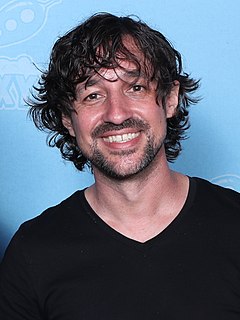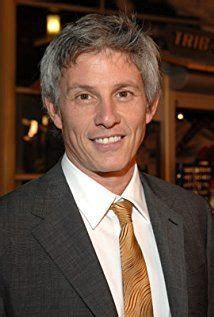A Quote by Marc Forster
'Quantum of Solace' was a bit of a different circumstance than a lot of my other films because you're stepping into a franchise, and also in that particular film, we're dealing with a script from the writer's strike, which was difficult to handle because there was never time to really develop a finished script.
Related Quotes
All directors make films in individual ways. But the classical kind of view of filmmaking is that you have a script, and it's very linear. There's a script, then you're going to shoot the script ,and then you cut that, and then that's the end of the film. And that's never really been how I've seen it.
I think that a lot of the time I don't go for something in particular. I see what comes to me, I filter it out. I never really strive to play a particular character or do a particular genre of film. As long as it's a good script and a great range of people and my character is really interesting I can't see any reason not to do it.
Whenever I'm doing any film, there's always three different things. There's the script, which is really just a blueprint. And then, you shoot the movie and it's an entirely different experience than you would expect from reading the script. And then, there's the whole post process and the editing, and it becomes something else entirely.
I have never seen a script that hasn't gone through at least eight different iterations before they even begin filming, and frequently what is filmed is not what's in the script, because things change on the ground. An actor can't say a particular line. An actor will have a brainstorm and ad lib something utterly brilliant.
Any good movie or script usually, if they're doing their job, gives the highest platform possible for an actor to leap off of, and that script was very high up there. It was a very smart, tight script. There was a lot of improv, as well, once we got to the set, but a lot of the original script was also in there.
A lot of films that have been adapted from books stop serving you because they become different. I mean, they are different entities in themselves, but artistically, what you're trying to achieve with a film is so very different to what you're trying to achieve with a book, and the way when you write a script is so very different on paper to how it seems on a screen.
I think Memento movie was hard because people didn't get it, they just didn't understand it. Not from the stage when we read the script and liked it. It's sort of a famous story now how we finished the movie and showed it to distributors and nobody wanted it. So it wasn't just they didn't get the script, they really didn't even understand the movie when it was done. But I think that was a particularly hard one. I don't think it was harder because we were girls, but I do think obviously there are particular challenges to working in a male-dominated industry.
When I start on a film I always have a number of ideas about my project. Then one of them begins to germinate, to sprout, and it is this, which I take and work with. My films come from my need to say a particular thing at a particular time. The beginning of any film for me is this need to express something. It is to make it nurture and grow that I write my script- it is directing it that makes my tree blossom and bear fruit.




































